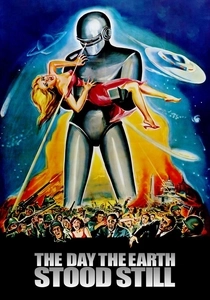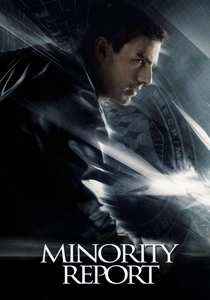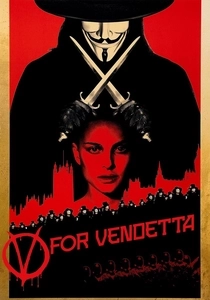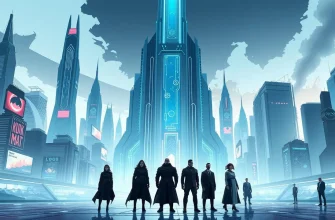Science fiction has always been a genre that not only entertains but also challenges our perceptions and beliefs about society, technology, and the future. This curated list of 10 films delves into the theme of public opinion, showcasing how science fiction can serve as a mirror to our collective consciousness, influencing and reflecting societal views on various issues. From dystopian futures where public opinion is manipulated to utopian societies where it's celebrated, these films offer a unique lens through which to examine our world.

The Day the Earth Stood Still (1951)
Description: An alien visitor comes to Earth with a message for humanity, challenging public opinion on peace, war, and the future of the planet, highlighting the power of collective action.
Fact: The film was remade in 2008 with Keanu Reeves in the lead role.
 Watch Now
Watch Now 
A Clockwork Orange (1971)
Description: This film examines the manipulation of public opinion through state control, focusing on the reformation of a violent youth, questioning the ethics of free will versus societal control.
Fact: Stanley Kubrick withdrew the film from UK cinemas due to copycat violence.
 Watch Now
Watch Now 
Brazil (1985)
Description: In a dystopian world where bureaucracy reigns supreme, public opinion is shaped by a totalitarian regime, and individual dreams are crushed under the weight of conformity.
Fact: The film's title is a reference to the song "Aquarela do Brasil," which plays during the opening credits.
 Watch Now
Watch Now 
Gattaca (1997)
Description: In a society where genetic engineering determines one's social status, public opinion is heavily influenced by one's genetic makeup, exploring themes of eugenics and discrimination.
Fact: The film's title is derived from the four nitrogenous bases of DNA: guanine, adenine, thymine, and cytosine.
 Watch Now
Watch Now 
The Truman Show (1998)
Description: Truman's life is a TV show, and public opinion is manipulated to keep him unaware of his artificial reality, exploring themes of voyeurism, privacy, and the impact of media on personal lives.
Fact: The film was nominated for three Academy Awards, including Best Director for Peter Weir.
 Watch Now
Watch Now 
The Matrix (1999)
Description: In a world where reality is an illusion, public opinion is controlled by the machines. This film explores themes of free will versus predestination, questioning whether our choices are truly our own or merely the result of a pre-programmed system.
Fact: The film's "bullet time" effect revolutionized visual effects in cinema. The Wachowskis wrote the script in just over a month.
 Watch Now
Watch Now 
Minority Report (2002)
Description: In a future where crimes are predicted and prevented before they happen, public opinion is swayed by the promise of a crime-free society, but at the expense of personal freedom and privacy.
Fact: The film's concept of pre-crime was inspired by Philip K. Dick's short story.
 Watch Now
Watch Now 
Equilibrium (2002)
Description: In a future where emotions are outlawed to prevent war, public opinion is suppressed through mandatory drug use. This film examines the consequences of a society devoid of personal feelings and the power of individual rebellion.
Fact: The film was inspired by Ray Bradbury's "Fahrenheit 451" and George Orwell's "
 Watch Now
Watch Now 
V for Vendetta (2005)
Description: Set in a dystopian future Britain, this film explores how a masked vigilante named V uses public opinion to overthrow a fascist regime, highlighting the power of symbols and ideas in shaping societal change.
Fact: The film's iconic mask has become a symbol for various protest movements worldwide.
 Watch Now
Watch Now 
The Circle (2017)
Description: This film delves into the dangers of transparency and the manipulation of public opinion through social media, questioning the ethics of a company that promises to connect everyone but at what cost?
Fact: The film is based on Dave Eggers' novel of the same name, which was inspired by real tech companies.
 Watch Now
Watch Now 








